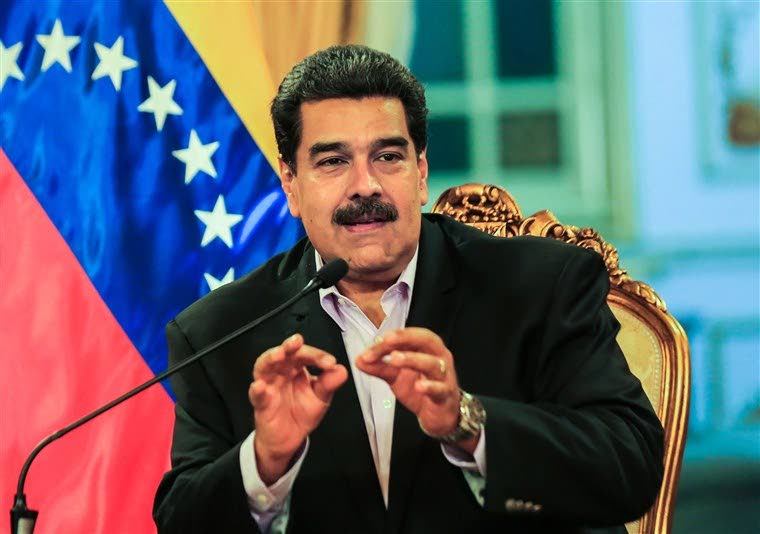Expert: Take Maduro's threat seriously

AN international relations expert told Newsday on Wednesday that Venezuelan President Nicolas Maduro's plans to exercise certain controls over the Essequibo territory in Guyana must be taken seriously, although saying that how the scenario unfolds could well be affected by larger countries such as Brazil and the United States.
Newsday spoke to Dr Anthony Gonzales, retired director of the Institute of International Relations (IIR) of the UWI, St Augustine, following Maduro's shock announcements on Tuesday.
Maduro promised control of oil exploration blocks, to take a population census and issue Venezuelan ID cards, to set up a local administration, and to absorb the Essequibo as a new state as shown in an expanded map of Venezuela that he issued.
His moves came after last Sunday's referendum on whether Venezuela should control the Essequibo and reject the remit of the International Court of Justice (ICJ) over the dispute, which Venezuelan election authorities claim has seen 10 million votes cast by the 20 million strong electorate overwhelming in favour.
Gonzales commented on Maduro's remarks.
"That has raised the level of the threat. There is a clear escalation here.
"While he may say Venezuela will not invade, you have to take these threats seriously.
"I don't see how he can do all these things he's saying without occupying the Essequibo."
Gonzales suggested Venezuela might be trying to pressure Guyana to the negotiating table but Guyana would not likely do so but rather await the ICJ's ruling.
"I think one has to take these threats seriously. The Brazilians have moved troops to the border. You have to expect anything."
Gonzales could not see how Maduro could make lots of promises but then back down.
"I sense there is a certain alarm in Guyana. These threats have to be taken seriously."
He said the issuance of a new map of Venezuela to include the Essequibo must be taken quite seriously.
Asked if Maduro had overplayed his hand, Gonzales said Venezuelans had long believed the Essequibo belonged to them. He reckoned 99 per cent would support a Venezuelan play for the Essequibo.
"Do you back down now and say you didn't mean it?" he asked of Maduro's stance.
"We'll have to wait and see."
He said countries like Brazil and the US were trying to talk to Maduro.
Gonzales said Guyana was due to take the matter to the UN Security Council on Wednesday.
"I doubt they'd get help because Russia would veto it. But raising it would put it at a new level."
He said the overall outcome would largely depend on how bigger countries reacted, such as Brazil and the US, including whether or not they said anything or did anything to try to dissuade Maduro from action.
"The Brazilians in a sense have sent a message to them: 'This is serious'. So we'll wait and see."
Newsday asked what position would be taken by Brazil President Luiz Inácio Lula da Silva whose leftist position was aligned to Maduro's but whose nations have had historical rivalries.
Gonzales replied, "Lula has shown that before that he may be on the left but will deal with matters on an issue by issue basis."
He said the Essequibo issue was very important for Brazil.
"They don't easily accept that Venezuela should take over the Essequibo. Remember they have a big border with the Essequibo and that border was formed out of negotiations with Venezuela, Brazil and the British. Brazil has always said they don't want any change in borders and so forth."
Gonzales said during a 1969 indigenous uprising in the Rupununi in Guyana, Brazil had sent troops to its border, at a time when many people thought Venezuela would send troops.
"The Brazilians came to the border and the Venezuelans never sent troops across."
Newsday asked about the likely position of the US.
Gonzales said Exxon was now extracting oil in an undisputed area but also has blocks awarded in the area claimed by Venezuela which said companies must reapply for these blocks.
He said the US is backing Guyana's ownership of the Essequibo.
"But whether they want to put troops on the ground and send warships is a very open question."
He noted joint exercises by the US and Guyanese military, plus Maduro's allegation that Guyana has offered the US to set up a military base in the Essequibo.
"We have to keep an eye on these things and see how it goes. In the coming days and weeks we'll see how countries react.
"I don't know what they are thinking and planning but we'll just have to speculate. Things may be clearer in the next few days."
He said the Venezuela Congress was on Wednesday due to debate legislation to annex the Essequibo.
Gonzales said he had discussed the issue with peers. "We all agree this is the threat that had never reached. We have to take it seriously.
"It is no longer just a veiled threat. Let's keep our fingers crossed."

Comments
"Expert: Take Maduro’s threat seriously"